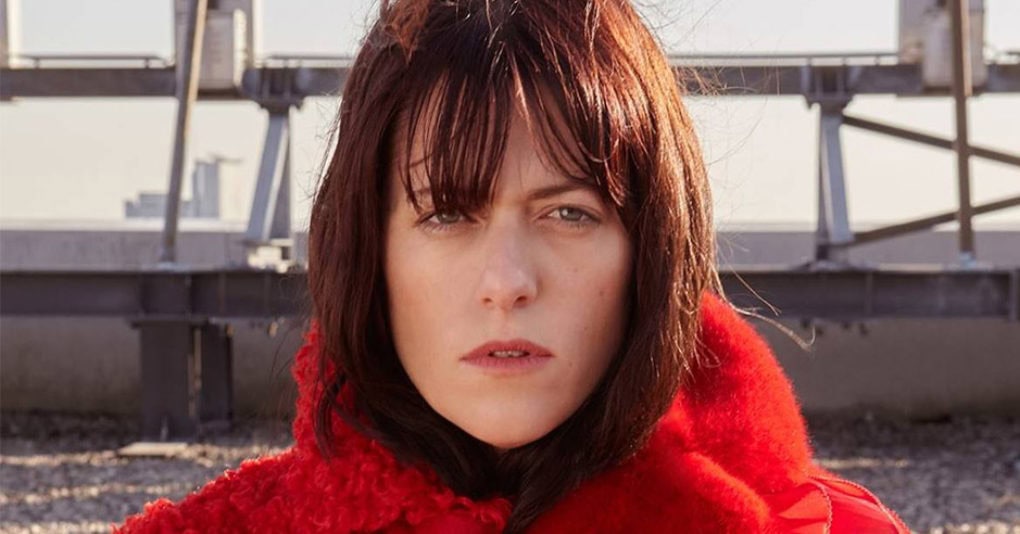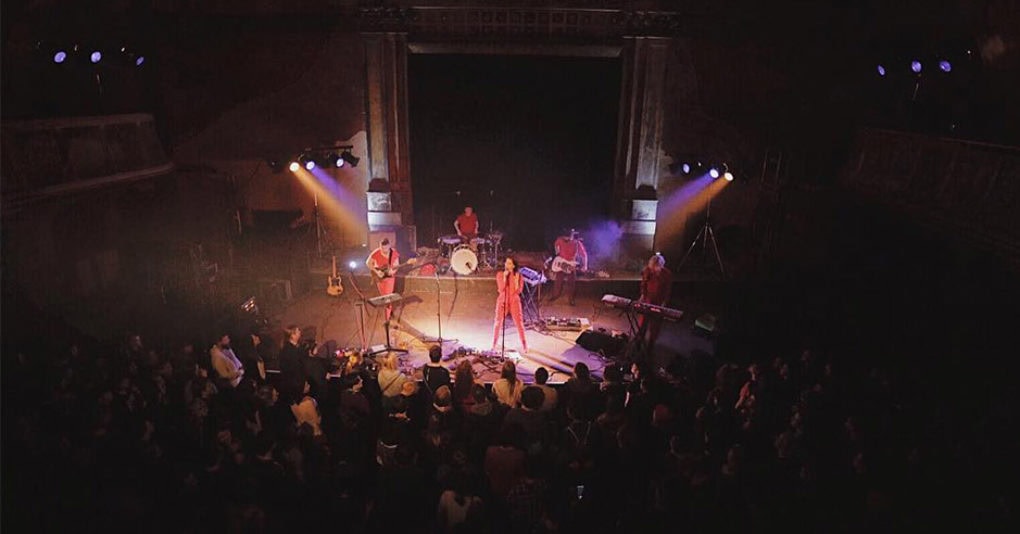
March 7, 2019
Women In Music: Separate And Not Equal
Kat Frankie’s melodies echo a direct expression of emotion: a shifting modality of a woman taking control of her artistic integrity, with a touch of resilience, revealing her personal agency. The sound is fresh and rebellious, supreme confidence grounded by beat. Frankie wields technology with a folk-soul for a professionalism that consciously disobeys the rules of pop decorum and demonstrates the turbulent nature of feminism in today’s music culture.
“As a girl, boys play their guitars at you. ”
In the world of songwriting and making music, the stories being told are strictly male. Men continue to dominate the discourse and festival stages are truly a sausagefest: Warped Tour, Wacken, Ozzfest, Rock am Ring. Of top performing artists, only one in five were women (1). When it comes to behind the scenes, women make up only 12% of songwriters, and producers are even rarer at only 2% (1). For reference, there are four times more female firefighters in Germany (2) than female music producers. The differences are, quite frankly, incomprehensible.
What’s It Like Being A Female Producer And Musician, A Solo Artist, And Part Of A Band?
As the only girl in the band, guys dump their shit on you – you’re the band psychologist. You have to shut that down. Also, I’ve been in bands where other members have made it clear that they don’t like touring with women. So you’re working twice as hard to justify your place.
“Everyone else is allowed to fuck up on a stage, except for you. ”

Last summer, we pulled up to this festival in Kassel and unloaded the van. This chick, her brain was exploding! She had never seen so many women backstage. It was beautiful! It becomes sort of like a badge of honor. We are a rare breed. I’m lucky to be on a stage where there are two or three girls in the band.
How Do You Feel Like Your Art Has Been Treated Differently Due To Your Gender?
People wanted me to work with producers to show me the way, rather than me coming up with something of my own. They weren’t interested in the way I wanted to do things, just my songs in their image. When a male artist produces his own stuff, no one questions it. But the combo of a female artist and producer, they always wonder when are you going to find a “real” producer. It’s annoying that people think that you need guidance. I need to be able to experiment. It’s part of my art and most importantly, for me. It’s my personal development as a human too.
“No one tells you that you are an artist. You self-identify and I started to do it too. ”
What Would Improve The Music Industry For Women?
We need more investment. Look at festivals where bookers say they can’t find good enough women to headline. There is bias built into the system: guys in bands get booked more at the beginning, they then have more money for better recordings, more opportunities open. They [bookers] make excuses that they had no idea how to find us and we get paid less because our work is less valued. That’s how that cycle starts.
It’s just so odd that music – something culturally relevant, on the edge of everything – remains one of the most retrograde industries, especially as far as equal pay is concerned. It’s behind in so many ways. We work less and get paid less, it’s a bit harder for us to navigate – we just don’t have the money there. It’s just the same with athletics, and other industries so why would the music be different? Give us jobs and pay us properly. I want access.
“Some people want to create a new system, but there's one in front of me. I am part of it and I can change it.”
At Keychange there’s the thought to start our own festival for women, but I would rather festivals book more women, see if anyone notices, and see how people react. You still need female categories to bring attention to women’s music, but then you aren’t a true competitor. I support women’s festivals, but only if they’re not marketed as such. They’re a platform for exposure and help boost the economy for female artists. Still, we all want access.
The next step is not just hiring more women, but men speaking up to support women since it can seem uncomfortable. Guys are open, but when it comes down to the crunch, they tend to harbor some retrograde views – they don’t hire us to play.
“Everything is a dude thing, It's not a huge deal. I want everything to be a "girl thing", and no big deal either. ”

Between the organic relationships in the music industry, between a manager and artist, a video director and singer, a photographer and their subject, women are more likely to make whispered compromises in their frameworks that reflect unconscious biases. With her “Bad Behavior,” Frankie stimulates a discourse about the emergence of uneven hierarchies.
But the topic of female musicians roaming the industry as the great white buffalo still feels compulsory, even after the now normal flourishing spectrums of gender on social media. Females tend to claim center stage when gender in music is a topic, but when it switches to only music, they usually go out of focus. Although affirmative action trials possible corrections to a skewed view of the musical past and present, to meaningfully alter it ushers a shift in a total perspective beyond simple mandates to close gaps. By calling her own shots, Frankie sends a solid, refreshing pitch for women to embrace their identity in every aspect, feminine, rockstar, and everything else.
Tickets for Kat Frankie’s performance and talk On The Red Couch, Artist Impacts: Weighing in on Gender Balance on March 14 at 18:00 are going quickly. Be sure to reserve a spot for you and a friend.